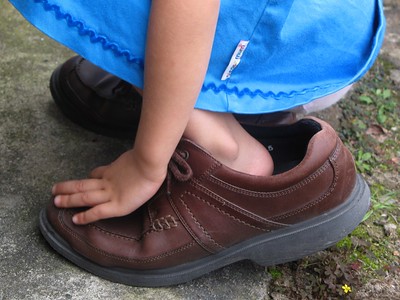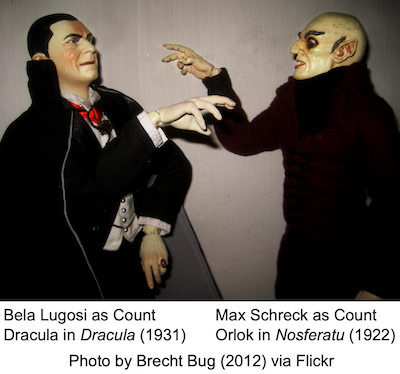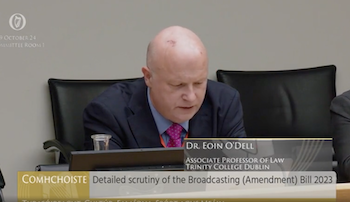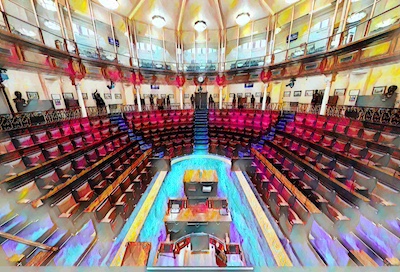 By means of the doctrine of subrogation, one person is substituted for another in the exercise of that other’s rights against a third person. In an oft-repeated (if not always apt) metaphor, the person receiving the benefit of subrogation is said to stand in the shoes of the other as against the third party (eg, Patten v Bond (1889) 60 LT 583 (Ch) 585 (Kay J); In re Bell Lines Ltd [2006] IEHC 188 (28 April 2006) (Dunne J); Lowick Rose LLP v Swynson Ltd [2018] AC 313, [2017] UKSC 32 (11 April 2017) [62] (Lord Mance)). However, the shoes are sometimes an imperfect, even an uncomfortable, fit. So, in Banque Financière de la Cité v Parc (Battersea) Ltd [1999] AC 221, [1998] UKHL 7 (26 February 1998) Lord Hoffmann commented that “the subject of subrogation is bedevilled by problems of terminology and classification which are calculated to cause confusion”, and a great many academic and judicial computer screens have been filled in seeking to allay that confusion. Now comes news of another labourer in the vineyard: Rory Gregson Subrogation and Marshalling (Hart Publishing, 2024); and a very welcome addition to the literature it is too. I am grateful to Hart Publishing for providing me with a pdf download to review here.…
By means of the doctrine of subrogation, one person is substituted for another in the exercise of that other’s rights against a third person. In an oft-repeated (if not always apt) metaphor, the person receiving the benefit of subrogation is said to stand in the shoes of the other as against the third party (eg, Patten v Bond (1889) 60 LT 583 (Ch) 585 (Kay J); In re Bell Lines Ltd [2006] IEHC 188 (28 April 2006) (Dunne J); Lowick Rose LLP v Swynson Ltd [2018] AC 313, [2017] UKSC 32 (11 April 2017) [62] (Lord Mance)). However, the shoes are sometimes an imperfect, even an uncomfortable, fit. So, in Banque Financière de la Cité v Parc (Battersea) Ltd [1999] AC 221, [1998] UKHL 7 (26 February 1998) Lord Hoffmann commented that “the subject of subrogation is bedevilled by problems of terminology and classification which are calculated to cause confusion”, and a great many academic and judicial computer screens have been filled in seeking to allay that confusion. Now comes news of another labourer in the vineyard: Rory Gregson Subrogation and Marshalling (Hart Publishing, 2024); and a very welcome addition to the literature it is too. I am grateful to Hart Publishing for providing me with a pdf download to review here.…
Author: Eoin
Open Justice and the GDPR: GDPRubbish, the Courts Service, and the Defence Forces
 Last June, Tánaiste and Minister for Defence Micheál Martin announced the appointment of Peter Ward SC (pictured right) to examine the administration of cases involving Defence Forces personnel charged or convicted of criminal offences. The Report (pdf) was published this week. One of the headlines about it caught my eye:
Last June, Tánaiste and Minister for Defence Micheál Martin announced the appointment of Peter Ward SC (pictured right) to examine the administration of cases involving Defence Forces personnel charged or convicted of criminal offences. The Report (pdf) was published this week. One of the headlines about it caught my eye:
Soldier jailed for sexual assault was able to remain in Army due to ‘data protection’ concerns
A soldier was able remain in the Defence Forces while in prison for sexual assault after the court authorities refused to hand over details of his offences to the military due to “data protection” concerns.
… The report, by senior counsel Peter Ward, found various instances of information on criminal convictions held by civilian authorities not being shared with the Defence Forces. In some cases, this significantly delayed the discharge process. …
In a post on Twitter (I still can’t call it X), Mark Hennessy (Ireland and Britain Editor of the Irish Times) commented that this was a
… scandalous misuse of the GDPR legislation, displaying a complete lack of common sense, amongst other failings. Court documents are public documents, unless there are legitimate grounds for them not being so, and this is clearly not the case her
On the basis simply of the above press report, I was inclined to agree.…
Winner, Berkowitz, Snepp, Blake & Bissonette – stripping the profits of authors who breach national security pre-clearance agreements
 In an article in today’s Guardian, I read that the punishment of US whistleblower Reality Winner (pictured right) was not only a conviction and sentence to 63 months in prison, but also a prohibition that she “can never be paid for telling her life story – whether in a book or through the several movies that have been made about her”. This rings three bells for me.
In an article in today’s Guardian, I read that the punishment of US whistleblower Reality Winner (pictured right) was not only a conviction and sentence to 63 months in prison, but also a prohibition that she “can never be paid for telling her life story – whether in a book or through the several movies that have been made about her”. This rings three bells for me.
First, in the summer of 1977, New York was terrorized by a serial killer calling himself Son of Sam, who was identified as David Berkowitz and apprehended. Given his notoriety, the rights to his story were worth a great deal of money. As a consequence, New York enacted legislation requiring a publisher contracting with a person “accused or convicted of a crime” for the production of a book describing the crime to pay to the Crime Victims Board any money owed to that person under the contract. The Board would then use that money to compensate victims of crime. Simon & Schuster contracted to publish Wiseguy: Life in a Mafia Family (1985), a book about the life of admitted organized crime figure Henry Hill, written by Nicholas Pileggi, with paid assistance from Hill.…
The horrors of copyright from Dracula to Nosferatu
 Abraham “Bram” Stoker (1847–1912) was an Irish author, best known for writing the 1897 Gothic horror novel Dracula. Stoker drew extensively from Transylvanian folklore and history for the novel, and he gave the title character the name Dracula because he thought it meant “devil” in Romanian.
Abraham “Bram” Stoker (1847–1912) was an Irish author, best known for writing the 1897 Gothic horror novel Dracula. Stoker drew extensively from Transylvanian folklore and history for the novel, and he gave the title character the name Dracula because he thought it meant “devil” in Romanian.
The novel was published in the United Kingdom in 1897 by Archibald Constable and Company, and in the United States in 1899 by Doubleday & McClure. To secure copyright, US law at the time required the author to deposit two copies of a book with the Copyright Office in the Library of Congress. However, in 1930, when Universal Studios purchased the movie rights, it was discovered that Stoker and Doubleday had deposited only one copy, which effectively meant that the book was in the public domain in the US. The novel and its title character have become mainstays of popular culture, and Stoker’s great grand-nephew Dacre Stoker has suggested that Stoker’s failure to comply with US copyright law contributed to the novel’s enduring status, since US writers and producers did not need to pay a licence fee to use the character. That may have been so in the US, but the opposite was the case in Europe.…
If Equity can develop new orders when necessary, can it develop anti-SLAPP orders? Part 2: SLAPPs, abuse of process, and anti-SLAPP injunctions
 1. Introduction: strategic lawsuits against public participation
1. Introduction: strategic lawsuits against public participation
In an earlier post on this blog, I argued that Equity can develop new orders and injunctions when necessary, and that there was space for it to develop a new order or injunction to prevent strategic lawsuits against public participation (anti-SLAPP orders). There have been several subsequent developments which compel me to revisit that post and make good on my promise in it to return to the topic.
First, the jurisdiction to develop new equitable injunctions has continued to evolve. In Pepper Finance Corporation (Ireland) DAC v Persons Unknown [2023] IESC 21 (31 July 2023), the Supreme Court held that, in exceptional cases, proceedings may be issued against persons unknown. Once such proceedings were properly issued, Hogan J (O’Donnell CJ, and Dunne, Charleton and O’Malley JJ concurring) assumed that an injunction could be ordered against persons unknown, and he proceeded directly to a consideration of the procedural steps to enforce it by means of the contempt jurisdiction, untroubled by any discussion of the basis of this heretofore unspotted injunction. The jurisdiction to award injunctions against persons unknown had been considered by the Court of Appeal of England and Wales in Canada Goose UK Retail Ltd v Persons Unknown [2020] EWCA Civ 303 (05 March 2020), which Hogan J cited with approval in Pepper Finance, so it may be that he felt that it was not necessary to revisit the question.…
Vindicating Open Access to Research Outputs

Happy international open access week! Prof Bernt Hugenholtz wrote on the Kluwer Copyright Blog yesterday about the European Federation of Academies of Sciences and Humanities (ALLEA) statements (2018 | 2018 | (2022 pdf)) in support of secondary publication rights for scholarly articles. I am a principal investigator on a research group that has recently proposed some draft legislation to achieve this end at Irish law.
The research group is called SCOIR (Secondary rights, Copyright, Open access, Institutional policies, and Rights retention), and we are grateful to the National Open Research Forum (NORF) and Knowledge Rights 21 for funding. “Scoir” is an Irish word for “unharness”, and this project aims to unharness the power of open research, consistently with national and EU policy. One of the ways in which we hope to vindicate research outputs, and achieve the goals of Secondary Publishing Rights and Rights Retention in Ireland, is by means of a draft Copyright and Related Rights (Research Outputs and Open Access) Bill 2024 (the current version of the draft Bill is here and here (both pdf downloads)).
The aim of this draft Bill is to underpin and vindicate the rights of researchers and their employers and funders to publish publicly-funded research outputs on open access platforms.…
Access to RTÉ’s archives
 Last Wednesday, 9 October 2024, I was at the Joint Oireachtas Committee on Tourism, Culture, Arts, Sport and Media, for a debate on the Broadcasting (Amendment) Bill 2023 (screengrab from here, left).
Last Wednesday, 9 October 2024, I was at the Joint Oireachtas Committee on Tourism, Culture, Arts, Sport and Media, for a debate on the Broadcasting (Amendment) Bill 2023 (screengrab from here, left).
This succinct and welcome Bill aims to amend the Broadcasting Act 2009 to provide for greater public access to the archives of Ireland’s national public service broadcaster, Raidió Teilifís Éireann (RTÉ). This is some of my opening statement (as delivered (with added links); the more extensive written version is here (pdf)):
…… I was the chair of the Copyright Review Committee. Our report, Modernising Copyright, led to the enactment of the Copyright and Other Intellectual Property Law Provisions Act 2019. One of the aims of our report was to enable users to have access to, and to use, copyright material “in line with the greater public interest”, as it is put in the Bill. For this reason alone, I commend the Bill. It is a crisp Bill with two key subsections. I will make some brief comments about drafting issues.
Section 1(a) of the Bill inserts into section 89 of the Broadcasting Act 2009 a general duty on RTÉ to make archives available for inspection and publication.
The Second Stage of the Defamation (Amendment) Bill, 2024 in the Dáil
 Introduction
Introduction
Yesterday, the Dáil took the Second Stage of the Defamation (Amendment) Bill, 2024 (Irish Times). It was introduced by James Browne, Minister of State in the Department of Justice. He said that this is “robust, fair and proportionate legislation, that is, a modernising defamation Bill well-suited to meet the challenges of a rapidly evolving communications landscape”, and he hoped for a swift passage through the House with a view to the early enactment of the Bill.
There were substantial contributions from Deputies Pa Daly (SF, Kerry), Ruairí Ó Murchú (SF, Louth), Brendan Howlin (Labour, Wexford), Jim O’Callaghan (FF, Dublin Bay South), Catherine Murphy (SD, Kildare North), Richard Boyd Barrett (PBP, Dún Laoghaire), Catherine Connolly (Ind, Galway West), and Thomas Pringle (Ind, Donegal). The main issues in the debate concerned the evergreen issues of the abolition of juries in the High Court, and restraints upon strategic lawsuits against public participation (SLAPPs). As much as there was universal welcome for SLAPPs, there was equally universal condemnation of the abolition of juries. And there was some disquiet with the absence from the Bill of any provisions relating to social media companies.
Juries
The Minister said that the abolition of juries in High Court defamation cases is a key reform under this Bill.…
